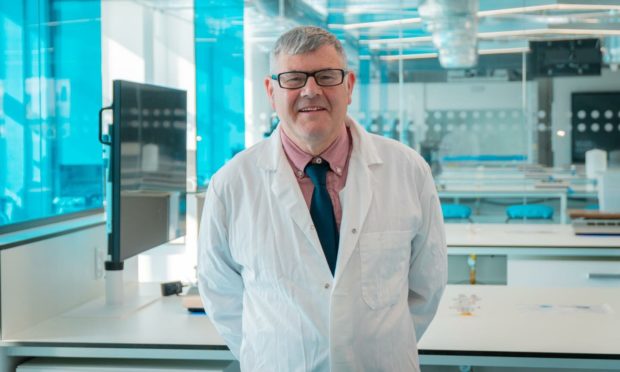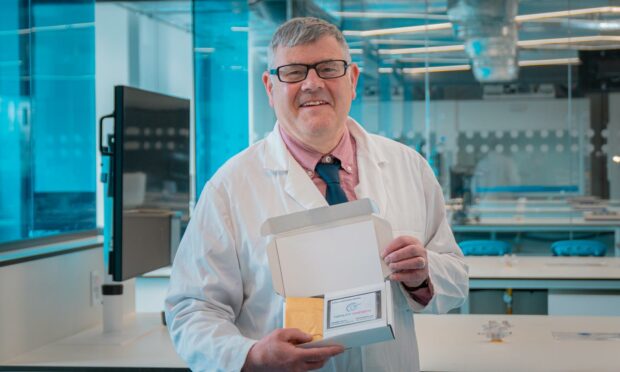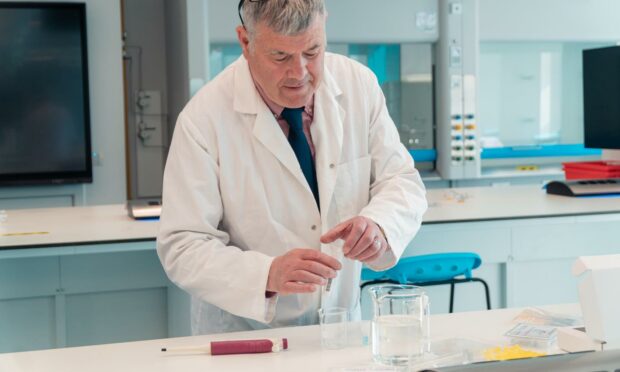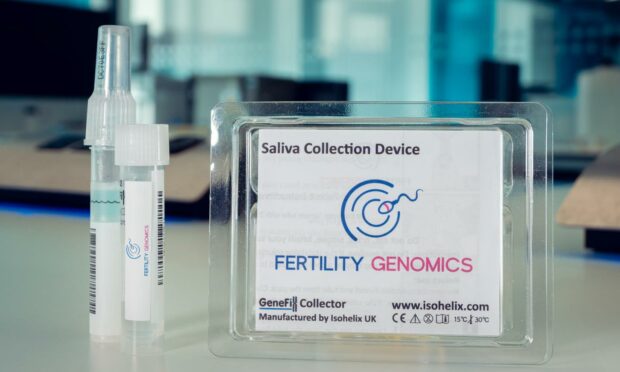Nearly two million couples across the world go through assisted reproduction techniques each year, with mixed results.
Treatments include the invasive in vitro fertilisation (IVF) or intracytoplasmic sperm injection (ICSI).
Some 50,000 couples in the UK alone also seek fertility treatments.
But NHS figures show success rates for IVF range from 29% to just 2%.
And in a number of cases, genetic defects mean these couples are unknowingly unable to conceive from the outset.
Almost a third in the UK are diagnosed with ‘unexplained infertility’.
Now, a Dundee company is aiming to help thousands of couples discover if these fertility treatments would be successful.
Dundee firm’s groundbreaking DNA test
Fertility Genomics was co-founded by former Abertay University lecturer Douglas Lester.
Fertility Genomics, co-founded by a team from Abertay University, has launched a new DNA test kit.
It tells couples struggling conceive whether fertility treatments will be successful.
The tests are to be available to couples across the UK.
The new test, which can be issued and returned by post, works by analysing DNA samples provided.
Fertility Genomics, which has been supported by the university’s Bell Street Ventures enterprise programme, then analyses the genes.
The team is able to look at all 22,000 known genes to get an unprecedented insight into genetic causes of infertility and failed assisted conception.
DNA test to empower couples
The DNA saliva test will allow couples to be screened for genetic causes of infertility at any stage of the process.
Dr Lester said their test picks up 85% of genetic mutations, where other tests only show 5%.
He added that by testing before starting IVF treatment, couples could avoid the heartache of repeated failed attempts.
He said: “If a couple is going through multiple failed rounds of IVF, it is heartbreaking.
“But if they get the test, we can stop them going through this and immediately direct them to another route.
“It is about empowering the couple either before they go to an IVF clinic or during the process.
“It is not about saying ‘this is the cause, there’s nothing you can do’.
“We aim to say ‘this is the cause of your infertility, here’s what you should do’.”
As well as the emotional impact, the tests could also save couples thousands of pounds.
The company’s chief scientific officer said: “Fertility Genomics helps put power into the hands of couples seeking to conceive.
“It allows them to make a more informed choice.”
A significant step for Fertility Genomics
The launch of the new tests is a “significant” step for the Dundee company.
At £600 for a single test, or £1,100 for a couple, the tests are a fraction of the price of a round of IVF.
That typically costs between £6,000 and £10,000.
“At the moment, the genetics only pick up 5% of mutations but sequencing is picking up 85% of mutations,” he added.
“It is a really significant leap in technology.”
Using statistical analysis, Fertility Genomics calculate the probability of the success of IVF or ICSI, based on DNA sequence parameters.
Hundreds of thousands of genome variants are assessed.
At the end of the process, Fertility Genomics produce guidance to help couples choose their best treatment path.
While the tests will be available to couples across the UK initially, the firm hopes to make them available across the world.



